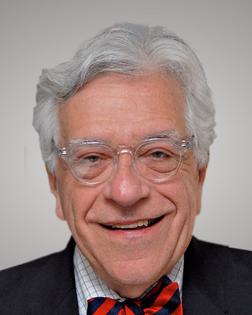The God Squad: The soul is the form of the body
Q: I just read your column about Heaven, and loved it. I, too, believe our souls are reunited with those we have lost. My question is, when you said the concept of Heaven began in the rabbinic times, do we know what caused them to think this after never having believed in Heaven before? Thank you for your columns. I find them enjoyable and very comforting in times of need for many different things. – (From K)
A: Dear K, there is nothing whatsoever preventing you from believing that the Bible is the word of God, and also believing this word evolves over time to accommodate our growing understanding of God’s revelation in our world of God’s providence. Providence is the belief that an all-powerful and good God will certainly reward righteousness and punish evil.
At first, for example, the Bible settles on the belief that people are punished for sin and rewarded for righteousness collectively. We share the fate of our people.
Then, after the destruction of the Temple in Jerusalem in 586 by the Babylonians, the belief in providence was shaken and this moved biblical theology to embrace the view that “each man dies for his own sin” (Heb: ish b’cheito yamut). See Ezekiel 18:20, Jeremiah 31:30, and Deuteronomy 24:16.
After the destruction of the second Temple in 70ce by the Romans another theological change was introduced to save the belief in God’s providence. This is the belief in body and soul and the life of the soul after death, but this change could not be included in the Bible because the final codification had been completed. However, in the period between the codification of the Bible in roughly 250bce and the New Testament in roughly 200ce, a period called the inter-testamental period that includes the books of the Apocrypha and Pseudepigrapha, a new belief became a part of rabbinic Judaism and Christianity. This was the belief that people are made up of bodies and souls and that our souls survive the death of our bodies.
This belief in body and soul came from the contact between the early rabbis and Greek philosophy. Specifically, it came from Alexander the Great who conquered Judea in 332bce. Alexander was influenced in his beliefs by his tutor Aristotle who taught him in Athens from 343 to 340bce. Aristotle taught Alexander about philosophy and his teachings which are preserved in his work De Anima, “On the Soul”. There he develops the idea of hylomorphism, which is the belief that all things are made up of matter which is the principal of potentiality and form, which is the principal of actuality. He taught that the soul is related to its body as form to matter, “The soul is the form of the body.”
This teaching of hylomorphism fit perfectly into Jewish, Christian and later Muslim religions that desperately needed to find a way to preserve a belief in God’s justice and goodness. See the writings of Aquinas and Maimonides. The solution was that in Heaven (The World To Come) righteous souls that had not been sufficiently rewarded in this life would be rewarded in the next. Conversely, wicked souls that had not been punished in this life would be tormented or extinguished in the fires of Hell.
The specific beliefs about Heaven and Hell differ to some degree in the three Abrahamic faiths but the main idea was common: if the part of us that is made in the image of God does not perish with the death of our bodies, then our journey to God and our life with God and our rewards from God for our righteousness and faith will all be resolved on the other side of the grave.
To make things clear for those who are confused, new words were created to name body and soul. In the Bible the word that means “life” but is usually wrongly translated “soul” is the Hebrew word nefesh. The new word for the soul in the post-biblical scriptures was neshama. The word for body is guf. So Aristotle through Alexander in the period known as Hellenism laid the foundation for the Abrahamic faiths to preserve a full and rich belief in God’s providence and give hope to believers that God has not abandoned us.
Armed with the new theological vocabulary rabbinic Judaism and Christianity and Islam could enter the late ancient and early medieval world with an explanation of our structure and our destiny.
(Send ALL QUESTIONS AND COMMENTS to The God Squad via email at godsquadquestion@aol.com. Rabbi Gellman is the author of several books, including “Religion for Dummies,” co-written with Fr. Tom Hartman. Also, the new God Squad podcast is now available.)
©2025 The God Squad. Distributed by Tribune Content Agency, LLC.
(c) 2025 THE GOD SQUAD DISTRIBUTED BY TRIBUNE MEDIA SERVICES, INC.












Comments